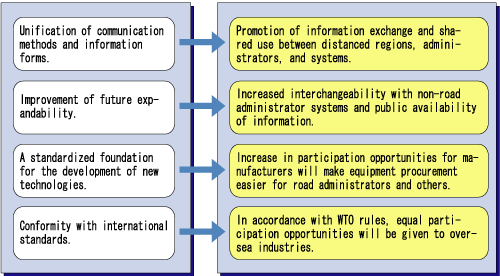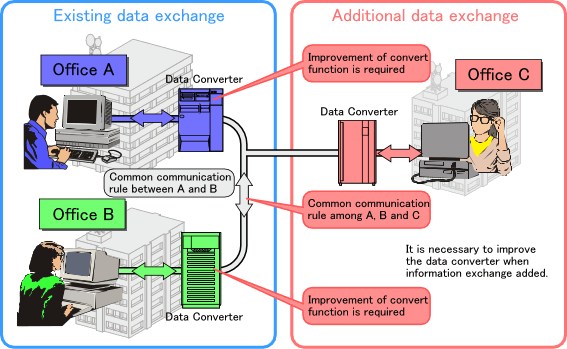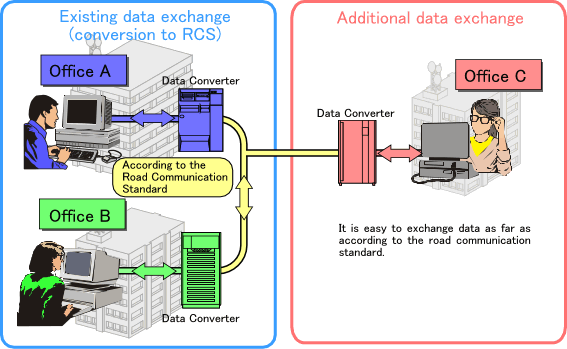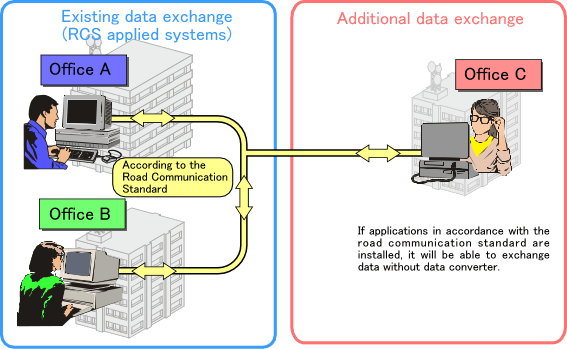the Road Communication Standard
Overview of the RCSObjective of the RCS
The Smartway concept promises the efficient development and implementation of a road infrastructure that utilizes the latest ITS technology.
While the consolidation and cooperation between various regions, road administrators, and non-road administrators become increasingly important for the development of Smartway, the current road communication system suffers from problems such as the ones listed below.

●Due to the coexistence of multiple communication protocols and the difference of data definitions, it requires a great amount of time and cost to make coordination between different systems. In some cases, such coordination may be extremely difficult.
●Because the definitions of information interpretations vary, the intersystemic coordination of information interpretations requires great expenditure of time and costs.In some cases, such coordination can be extremely difficult.
●It is often the case that the different communication method is employed between the machines made by different makers, where interchangeability is not guaranteed.
This lack of conformity may hinder the day-to-day operation. It also may cause the increase of machine price since we can not select the machine from many potential makers.
Purpose of the RCS
As a solution to the problems listed above, and as a way to attain the objectives described below, Road Communication Standards will provide data definitions, message exchange procedures and communication protocols involved in road communication.
●By guaranteeing interconnectivity, interoperability, and interchangeability of machines, we will improve system expandability, system development efficiency, and promote the shared use of information resources.
●By considering the conformity with international standards, the fair market open to the foreign industries will be realized.
Effect of the RCS
Utilization of RCS can be expected to provide the following effects.
●By unifying the forms of data usage and communications systems, data exchange and usage of the same sources of data will be available between separate locations, and administrators and managers using different systems.
●For building up compatibility with systems other than those used by highway administrators, as well as achieving common use of data in future, data exchange and common use of information resources will be possible by using RCS as a system foundation.
As a result, data extension and compatibility will also be secured.
●Up until now highway administrators expanding and updating their existing systems naturally have had to use the services of the maker who provided their system because only that maker understood the technical details involved.
The use of RCS as an underlying system should enable highway administrators to cut procurement costs by using the services of several makers. In other words, free market principles can come into play. Purchasing equipment will become more convenient.
●The WTO has established international standards to be used instead of domestic standards for international procurement.
The RCS have been created to conform to international standards.
This will allow foreign companies equal opportunities in the Japanese market.

Especially, it is necessary to improve the data converter when data exchange added in current systems.

However, it is easy to data exchange according to the RCS as common communication rule in such case.

In addition, if these systems was designed in accordance with the RCS, it will be able to exchange data without data converter.
